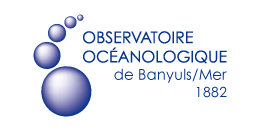Snail hosts abundance mediates the effects of antagonist interactions between trematodes on the transmission of human schistosomes.
Résumé
Background: Combating infectious diseases and halting biodiversity loss are intertwined challenges crucial to ensure global health. Biodiversity can constrain the spread of vector-borne pathogens circulation, necessitating a deeper understanding of ecological mechanisms underlying this pattern. Our study evaluates the relative importance of biodiversity and the abundance of Bulinus truncatus, a major intermediate host for the trematode Schistosoma haematobium on the circulation of this human pathogen at aquatic transmission sites.
Methods: We combined mathematical modelling and a molecular based empirical study to specifically assess the effect of co-infections between S. haematobium and other trematodes within their B. truncatus snail hosts; and B. truncatus abundance at transmission sites, on the production of S. haematobium infective cercariae stages released into the aquatic environment.
Results: Our modelling approach shows that more competitive trematode species exploiting B. truncatus as an intermediate host at the transmission site level leads to higher co-infection rates within snail hosts, subsequently reducing the production of S. haematobium cercariae. Conversely, an increase in B. truncatus abundance results in lower co-infection rates, and a higher proportion of S. haematobium cercariae released into the environment. Our empirical data from the field support these findings, indicating a significant negative effect of local trematode species richness and co-infection rates on the dominance of S. haematobium, while B. truncatus abundance positively influences S. haematobium dominance.
Conclusions: Our study highlights the importance of biodiversity in influencing the transmission of S. haematobium through the effect of antagonistic interactions between trematodes within bulinid snail hosts. This effect intensifies when B. truncatus populations are low, promoting co-infections within snails. In line with the need for concrete applications of the One Health concept, we advocate for maintaining high global freshwater biodiversity to sustain global trematode diversity at transmission sites, offering a cost-effective means to significantly reduce schistosome prevalence and intensity while preserving aquatic ecosystem services.
| Origine | Fichiers produits par l'(les) auteur(s) |
|---|

